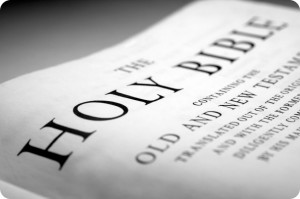From the Psalter:
We have heard with our ears, O God, our forefathers have told us,
the deeds you did in their days, in the days of old.
(From the Daily Office Lectionary – Psalm 44:1 (BCP Version) – July 22, 2013.)
 I am often complimented on my knowledge of biblical history, especially the lesser known stories of the Old Testament. Some members of my parish tell me how much they enjoy it when I make an exegetical digression in a sermon to explain the background of some bit of text. Yesterday, a retired clergy colleague extended the compliment to “your seminary professors,” who, he was sure, did a much better job of teaching the Scriptures than had his own mentors.
I am often complimented on my knowledge of biblical history, especially the lesser known stories of the Old Testament. Some members of my parish tell me how much they enjoy it when I make an exegetical digression in a sermon to explain the background of some bit of text. Yesterday, a retired clergy colleague extended the compliment to “your seminary professors,” who, he was sure, did a much better job of teaching the Scriptures than had his own mentors.
Responsibility for what I know of the Bible (and I consider my depth of knowledge shallow and inadequate) cannot be laid at the feet of my seminary professors. As many know, I read for Holy Orders rather than attend seminary and obtain the typical three year Master of Divinity degree. After being ordained a deacon, I went to a seminary for one academic year, during which I took only a New Testament survey course and a Greek language course which used the Epistle of James as its principal text. No . . . what little knowledge of Scripture I have is not a result of a seminary education.
There is one person who can claim the credit, my grandfather Charles Edgar Funston, Jr. My grandfather was a Methodist layman who spent nearly fifty years teaching Sunday School to all age groups in his local parish. During the summers of my childhood, which my four cousins and I spent living with our grandparents, he drilled his grandchildren in bible study. We heard with our ears what our grandfather told us, the deeds God did in the days of old.
One ritual, in particular, which committed bible verses to memory during those summer sojourns in our grandparents’ home was grace at the evening meal. Each morning before he went to work and we went to do whatever chore or mischief was on our agenda, C.E. (as my grandfather was called) would give us each a verse to contemplate and memorize during the day, and he would tell us something of its context. At supper, he would call upon one of us to offer a grace which was to incorporate the verse; we were not simply to parrot back the Scripture, but to use it or paraphrase it in a thanksgiving prayer of our own creation. We never knew whom he might call upon, so all of us had to be prepared. If you weren’t, there was no penalty . . . except Granddad’s disappointment, and no one wanted to risk that!
I suspect that that sort of familial instruction in the Holy Scriptures was rare enough at that time, and that it is practically nonexistent in today’s world. Few folks in my generation, or our children’s and grandchildren’s cohorts, will have received biblical education in the church, let alone at the feet of a grandparent. I find that most congregations to whom I preach are, as a result, largely biblically illiterate. Reciting Psalm 44 today for most people will not be a statement of their personal reality, merely an historical curiosity out of the Hebrew past. That’s a tragedy, I think.
I’ve long forgotten the exact words of many (indeed, nearly all) of those verses of the King James Bible memorized during those childhood summers, but a general knowledge of the stories of Scripture remains. More importantly, my grandfather provided me with a foundation on which to build the structure of faith, a knowledge of the past from which to move into the future. Sometimes I wonder, how is the faith community to move into the future? How is it to transmit the faith if children do not hear with their ears, from their forebears, the deeds of God did in days of old? How are children do develop the same sort of foundation if they do not learn those stories? And how can they hear those tales if their parents and grandparents themselves don’t know them?
The church’s task of Christian formation and Christian education gets more and more difficult with each passing year, each passing generation, as fewer and fewer people know the stories of faith. Those who do know them have an enormous responsibility to become storytellers and pass them on, so that recitation of this psalm becomes a reflection of reality, not merely an historical, liturgical curiosity.
====================
A request to my readers: I’m trying to build the readership of this blog and I’d very much appreciate your help in doing so. If you find something here that is of value, please share it with others. If you are on Facebook, “like” the posts on your page so others can see them. If you are following me on Twitter, please “retweet” the notices of these meditations. If you have a blog of your own, please include mine in your links (a favor I will gladly reciprocate). Many thanks!
====================
Father Funston is the rector of St. Paul’s Episcopal Church, Medina, Ohio.



Leave a Reply